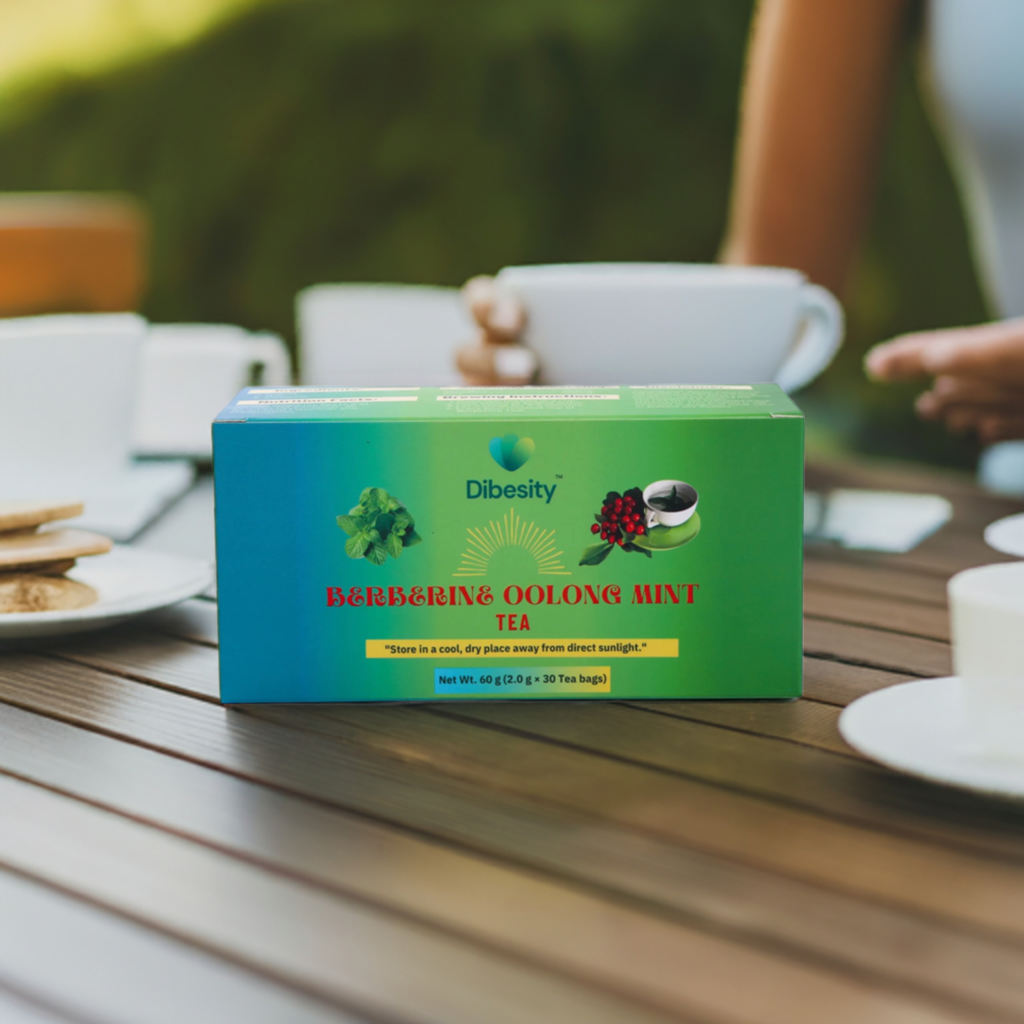Berberine tea, derived from the roots and bark of various plants such as Goldenseal, Oregon grape, and Berberis vulgaris, has garnered attention for its myriad health benefits.
The active compound berberine has been utilized for centuries across different cultures, particularly in traditional Chinese and Ayurvedic medicine. Renowned for its potential therapeutic properties, berberine tea has been recognized not only for its contributions to overall health but also for specific applications in renal health and sexual enhancement.
The origins of berberine can be traced back to ancient herbal practices where it was employed for various ailments. Its use as a natural remedy has evolved over time, adapting to modern health paradigms.
Today, berberine is available in multiple forms, including capsules, powders, and teas, making it accessible to a broader audience seeking natural healing solutions.
In traditional herbal medicine, berberine has been valued for its antibacterial, anti-inflammatory, and antioxidant properties. These beneficial effects have supported its use in treating conditions such as infections, digestive disorders, and metabolic imbalances.
Recent research has also illuminated its potential role in supporting renal health, specifically in preventing urinary stones, a condition impacting many individuals globally. Furthermore, its reported influence on sexual health is noteworthy and aligns with many users’ desires for organic remedies that promote vitality and wellness.
By consuming berberine tea, individuals may harness the benefits of this ancient remedy while also capitalizing on its newfound recognition in contemporary healthcare discussions.
The hydration aspect of tea combined with the bioactive content of berberine offers a unique approach to enhancing both renal function and sexual health. Understanding these dual benefits sets the stage for exploring the applications of berberine tea in modern wellness practices.
Understanding Renal Stones: Causes and Symptoms
Renal stones, commonly known as kidney stones, are hard deposits formed in the kidneys that consist of minerals and salts. Their formation is a multifactorial process, influenced by chemical composition in urine, dehydration, dietary habits, and genetic predisposition.
The most prevalent types of renal stones include calcium stones, uric acid stones, struvite stones, and cystine stones. Calcium stones, primarily composed of calcium oxalate or calcium phosphate, account for approximately 80% of all kidney stones.
Uric acid stones form when the urine is acidic and can be associated with high protein diets. Struvite stones, often linked to urinary tract infections, develop in alkaline urine, while cystine stones are a result of a genetic disorder that leads to excess cystine in the urine.
The symptoms of renal stones can vary based on their size and location within the urinary tract. Common signs include severe pain in the back or side, known as renal colic, hematuria, which is the presence of blood in the urine, and frequent urination. In some cases, individuals may experience nausea and vomiting, particularly if the stones lead to urinary obstruction. Awareness of these symptoms is crucial for timely medical intervention.
To prevent the formation of these stones, understanding the risk factors is essential. A diet high in sodium, oxalate, and animal protein can increase susceptibility to developing stones. Dehydration, often resulting from insufficient water intake, can also concentrate minerals in the urine, promoting stone formation.
Therefore, drinking plenty of fluids and maintaining a balanced diet may reduce the risk of renal stones significantly. Incorporating natural remedies, such as berberine tea for renal stones, can also be beneficial. Berberine, an active compound found in several plants, may help improve metabolic health and decrease stone formation risk, providing a potential adjunct to dietary management.

The Role of Berberine in Renal Health
Berberine is a bioactive compound derived from various plants, including Goldenseal and Barberry, boasting a multitude of health benefits. Among these benefits, its role in promoting renal health has garnered attention, particularly regarding the prevention and management of renal stones.
These minerals can crystallize in the kidneys, causing significant discomfort and potentially leading to severe complications if left untreated. The incorporation of berberine tea for renal stones has shown promising results due to its multifaceted properties.
One of the primary advantages of berberine is its potent anti-inflammatory effect. Inflammation is often a precursor to several renal conditions, including stone formation.
By mitigating inflammation, berberine may contribute to a healthier renal environment, helping to prevent the crystallization of minerals that lead to stones. Additionally, berberine possesses strong antioxidant properties, which may further safeguard renal tissues by neutralizing harmful free radicals. This dual action promotes overall kidney function, reducing the likelihood of complications associated with renal stones.
Clinical studies have begun to support these claims, with research indicating that berberine can positively affect various markers of kidney health. For instance, it has been observed to lower levels of urea and creatinine, both indicators of renal function, thereby suggesting its potential benefits for those predisposed to renal stones.
Anecdotal evidence from individuals incorporating berberine tea for renal stones has also emerged, highlighting experiences of fewer stone-related incidents and improved overall kidney health.
In conclusion, the incorporation of berberine into a wellness routine may prove beneficial for maintaining renal health and preventing stone formation. Its anti-inflammatory and antioxidant properties provide a compelling case for considering berberine tea as a complementary approach to managing renal stones, thereby enhancing overall kidney function and health.
Preparing Berberine Tea: Recipe and Tips
Creating berberine tea is a straightforward process that allows you to unlock its myriad health benefits, particularly for renal stones and sexual health. To prepare this herbal infusion, consider the following recipe and tips, ensuring a pleasant yet healthful experience.
For a basic berberine tea, you will need:
- 1 teaspoon of berberine powder or 1-2 berberine capsules
- 1 cup of hot water (not boiling)
- Optional: Honey or lemon for flavor
- Optional: Additional herbs such as ginger or mint for an aromatic twist
Begin by adding the berberine powder to a cup of hot water. If using capsules, open them and pour the contents into the water. Stir well to ensure that the powder is fully dissolved. Allow the mixture to steep for about five to ten minutes. This infusion time helps to release the beneficial compounds in berberine, maximizing its impact on your renal stones and overall health.
Once the tea has steeped, you may opt to sweeten it with honey or a splash of lemon juice, which not only enhances the flavor but also adds vitamin C. Alternatively, adding fresh ginger or mint can create a refreshing beverage while retaining the tea’s health benefits. It is advisable to consume berberine tea in moderation—generally, one or two cups per day is recommended, although individual tolerance may vary.
When sourcing quality berberine, select reputable brands that offer third-party testing and clear labeling of dosage. This is essential to ensure you are receiving effective herbal components, particularly those that assist with renal stones. Enjoying berberine tea regularly can weave beneficial health properties into your daily routine, supporting both renal health and sexual well-being.

Berberine Tea for Sexual Health: Understanding the Connection
Sexual health is an essential component of overall well-being, impacting both physical and emotional aspects of life. It encompasses a wide range of factors that contribute to an individual’s sexual vitality and performance. Among these key elements are lifestyle choices, dietary habits, and general health status, each playing a significant role in determining sexual functioning and satisfaction.
A healthy lifestyle is foundational for optimal sexual health. Regular physical activity not only enhances physical fitness but also improves blood circulation, which is vital for sexual arousal and performance.
Additionally, managing stress levels is crucial, as chronic stress can lead to hormonal imbalances that negatively affect libido and sexual function in both men and women. Furthermore, adequate sleep and effective stress-reduction techniques can play a pivotal role in maintaining healthy sexual relationships.
Diet is another influential factor in sexual health. Nutritional choices can significantly impact one’s ability to achieve and maintain sexual vitality. Diets rich in fruits, vegetables, lean proteins, and healthy fats contribute to overall health, including sexual well-being. Specific nutrients, such as zinc and vitamins A, C, and E, are particularly important for reproductive health. Consuming foods that enhance blood flow and promote hormonal balance can also help optimize sexual performance.
In the pursuit of enhancing sexual health, many individuals are turning to supplements as complementary options. Berberine tea, for instance, has garnered attention for its potential benefits in various aspects of health. Its properties may support metabolic processes and promote cardiovascular health, which are critical for the sexual vitality of both men and women. As such, incorporating berberine tea for sexual health could provide additional support for those seeking to bolster their sexual performance.
Overall, understanding the intricate relationship between lifestyle, diet, and sexual health is crucial in promoting a fulfilling intimate life. By addressing these factors, individuals may uncover pathways to improve their sexual well-being, paving the way for exploring beneficial supplements like berberine tea.
Berberine and Sexual Performance: What the Research Says
Recent research has illuminated the potential benefits of berberine tea for sexual health, particularly in its influence on testosterone levels and overall hormonal balance. Berberine, a compound extracted from several plants including the Berberis genus, has been recognized for its multiple health benefits, including its role in enhancing sexual function.
One study suggests that berberine may positively influence testosterone production, which is critical for libido and sexual performance in both men and women.
Moreover, berberine’s effects extend to improving blood circulation. Enhanced circulation is essential for optimal sexual function, as it facilitates the flow of blood to various tissues, including the genital area. Improved blood flow can lead to increased arousal and heightened sensitivity, resulting in a more satisfying sexual experience.
Some research indicates that berberine tea for sexual health may help in managing conditions that affect circulation, thereby contributing to better sexual health outcomes.
In addition to boosting testosterone and enhancing circulation, berberine may support overall hormonal balance. Hormonal health plays an integral role in sexual performance, as several hormones interact to regulate libido and physiological responses during sexual activity. By promoting an optimal hormonal environment, berberine tea could help individuals achieve better sexual function and satisfaction.
Furthermore, lifestyle factors such as diet and exercise can interact synergistically with berberine’s effects. Consuming berberine tea as a part of a healthy lifestyle may yield greater benefits, possibly enhancing its impact on sexual health even more. The ongoing research into berberine’s effects creates an optimistic framework for those considering this herbal remedy for such intimate aspects of health.
In conclusion, the connections between berberine tea and sexual health are becoming increasingly evident through various studies. Berberine’s potential to influence testosterone levels, improve circulation, and support hormonal balance suggests it may be a valuable addition for those seeking to enhance their sexual wellness.

Potential Side Effects and Considerations
While berberine tea is gaining recognition for its health benefits, particularly concerning renal stones and sexual health, it is essential to acknowledge potential side effects and contraindications. As with any supplement, understanding the risks associated with berberine tea can help individuals make informed decisions regarding their health.
Berberine, a compound derived from various plants, is generally considered safe for most individuals when consumed in appropriate amounts. However, some may experience gastrointestinal disturbances, such as diarrhea, constipation, or abdominal pain. These symptoms may arise, especially when berberine tea for renal stones is consumed in excessive quantities. It is advisable to start with smaller doses to gauge tolerance before gradually increasing intake.
Moreover, berberine can interact with certain medications, particularly those that are metabolized by the liver. For individuals on medications such as anticoagulants or those prescribed for diabetes, it is critical to consult a healthcare provider before incorporating berberine tea into their wellness routine. The tea may enhance the effects of these medications, leading to potential risks, including bleeding or dangerously low blood sugar levels.
Pregnant and breastfeeding individuals should also exercise caution. Limited research exists regarding the safety of berberine and its potential effects on fetal development or infant health, making it prudent for these populations to consult healthcare professionals prior to consumption. Additionally, individuals with pre-existing health conditions, such as liver disease or gastrointestinal disorders, should seek medical advice before using berberine tea for sexual health or any other reason.
By considering these factors and consulting with a healthcare provider, individuals can safely explore the potential benefits of berberine tea, whether targeting renal stones or enhancing sexual health.
Integrating Berberine Tea Into Your Lifestyle
Incorporating berberine tea into your daily routine can play a significant role in enhancing your overall health, particularly in managing renal stones and improving sexual health. To effectively integrate this tea, consider the optimal times for consumption. It is best consumed in the morning or early afternoon, as this timing may help maximize its health benefits, allowing your body to utilize the medicinal properties throughout the day.
Pairing berberine tea with other healthful habits can further enhance its benefits. A balanced diet that includes plenty of fruits and vegetables can work synergistically with berberine tea to improve your renal health and support sexual vitality. Foods rich in antioxidants, such as berries and leafy greens, can reduce oxidative stress and inflammation, complementing the protective effects offered by berberine tea. Maintaining a well-rounded hydration plan with adequate water intake is essential to flush toxins from the body and prevent kidney issues.
Exercise is another critical element when integrating berberine tea into your lifestyle. Regular physical activity promotes healthy circulation and metabolic function. By combining exercise with the consistent consumption of berberine tea, you can observe improvements not only in renal health but also in sexual performance. Incorporating practices such as yoga or meditation can further improve your well-being, reducing stress and improving overall hormonal balance.
Finally, it is beneficial to monitor health indicators related to renal health and sexual performance. Keeping a journal to track your experiences, including any changes in symptoms or improvements in your overall well-being, can provide valuable insights. This self-monitoring can inform adjustments in your lifestyle and tea consumption to ensure that you are optimizing the benefits of berberine tea for renal stones and sexual health effectively.

Conclusion: The Future of Berberine in Health and Wellness
In recent years, the interest in berberine tea has surged due to its potential benefits for both renal stones and sexual health. The rich compounds found in this herbal tea are believed to support the healthy functioning of the kidneys, thereby reducing the risk of renal stones. Additionally, berberine tea has garnered attention for its positive effects on sexual health, enhancing libido and overall reproductive wellness. This dual-action makes berberine tea a noteworthy addition to health and wellness discussions.
Although current research highlights the promising potential of berberine tea for renal stones, it is essential to acknowledge that scientific inquiry is still evolving. Future studies will likely provide more robust evidence regarding the mechanisms through which berberine influences kidney health and may uncover new therapeutic applications. Furthermore, exploring the sexual health benefits of berberine tea requires additional investigation, as many factors contribute to sexual wellness, making it a complex area that warrants further exploration.
As we look to the future, it is crucial for health enthusiasts and practitioners to approach berberine tea not as a standalone remedy but as a part of a comprehensive wellness strategy. Personal experimentation with berberine tea can yield valuable insights, allowing individuals to gauge its effects on their health while taking into consideration the importance of dietary, lifestyle, and emotional factors in holistic health. Overall, while the potential benefits of berberine tea for renal stones and sexual health are noteworthy, ongoing research and a multifaceted approach are paramount in realizing its full promise in health and wellness.



